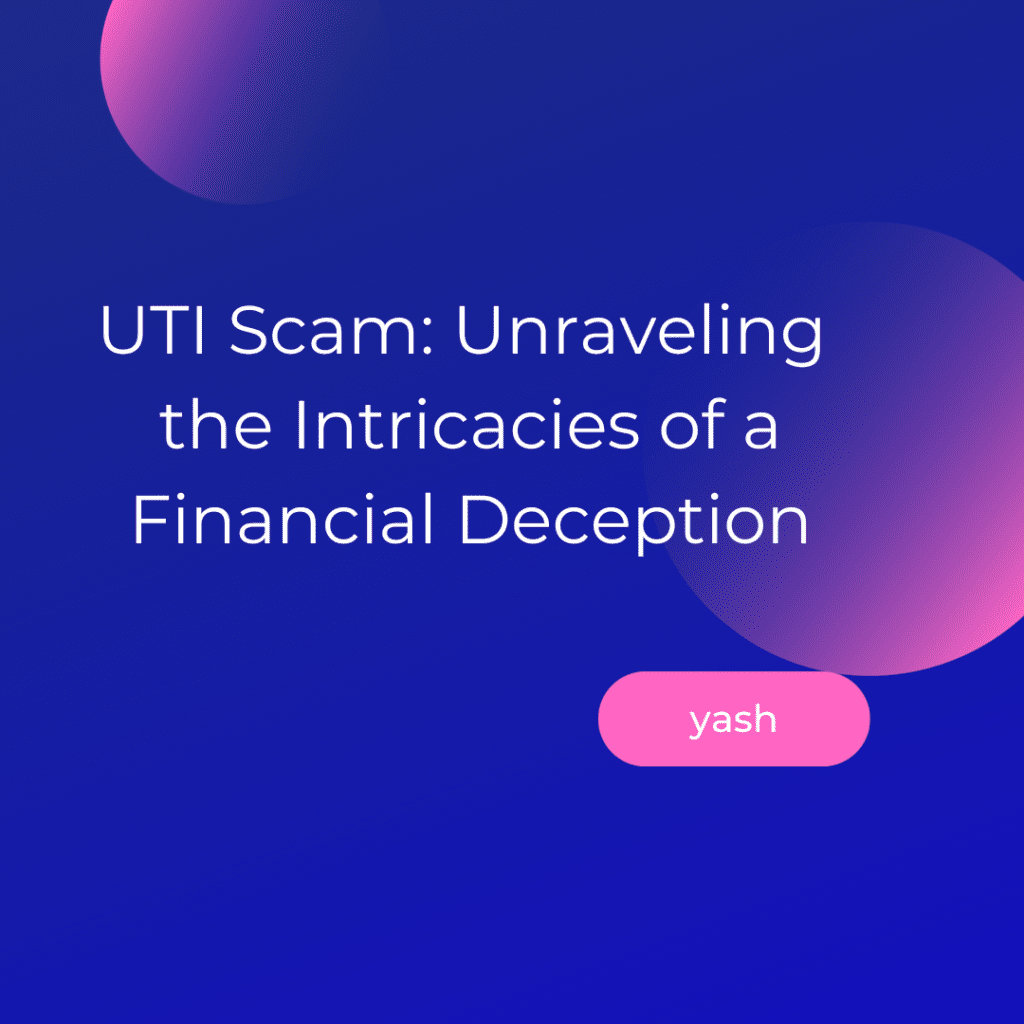Introduction
In the world of finance, trust is paramount. Investors rely on the competence and integrity of financial institutions to safeguard their hard-earned money. Unfortunately, the financial landscape is not immune to scams and fraudulent schemes. One such scam that has rattled the financial world is the UTI Scam. In this article, we will delve deep into the details of the UTI Scam, its origins, modus operandi, consequences, and how you can protect yourself from falling victim to such deceptions.
Understanding UTI
What is UTI?
UTI, or Unit Trust of India, is a financial institution that manages mutual funds in India. Established in 1963, it has been a trusted name in the Indian financial sector for decades. UTI played a pivotal role in channeling the savings of millions of Indians into productive investments.
The Promise of Prosperity
UTI was known for offering a promise of prosperity to its investors. It attracted people from all walks of life, enticing them with the allure of substantial returns on their investments.
The Scandal Unfolds
Emergence of Irregularities
In the late 1990s, whispers of irregularities within UTI began to circulate. Investors started noticing discrepancies in their account statements, and doubts about the financial health of the institution started to emerge.
Ketan Parekh’s Role
Ketan Parekh, a prominent stockbroker, played a central role in the UTI Scam. He exploited weaknesses in UTI’s operations and used unethical tactics to manipulate the market.
The Domino Effect
As the scandal deepened, panic spread like wildfire among UTI investors. A massive redemption pressure ensued, causing the fund’s net asset value to plummet.
Legal Ramifications
Regulatory Crackdown
To restore investor confidence, regulatory bodies like SEBI (Securities and Exchange Board of India) and RBI (Reserve Bank of India) intervened. They initiated investigations and imposed strict regulations to prevent such incidents from recurring.
Legal Proceedings
Several individuals involved in the UTI Scam faced legal consequences. Ketan Parekh and other culprits were prosecuted, serving as a warning to others who might contemplate similar actions.
Protecting Yourself from Financial Scams
Due Diligence
To shield yourself from financial scams, always perform due diligence. Research the financial institution thoroughly, including its history, reputation, and regulatory compliance.
Diversify Your Investments
Avoid putting all your eggs in one basket. Diversify your investments across different asset classes to reduce risk.
Stay Informed
Stay updated with the latest financial news and market trends. Awareness is your best defense against fraudulent schemes.
Conclusion
The UTI Scam serves as a stark reminder of the need for vigilance in the world of finance. While institutions like UTI are typically trustworthy, no entity is immune to deceitful individuals. By staying informed, diversifying your investments, and conducting due diligence, you can protect your financial interests.
FAQs
1. Can I still invest in mutual funds after the UTI Scam?
Yes, you can. However, it’s crucial to choose mutual funds carefully and follow the guidelines for safe investing.
2. Did UTI recover from the scandal?
Over time, UTI managed to rebuild its reputation and regain the trust of investors through transparency and regulatory compliance.
3. How can I report suspicious financial activities?
You can report suspicious financial activities to regulatory authorities like SEBI and the police’s economic offenses wing.
4. Are all mutual funds prone to scams?
No, not all mutual funds are susceptible to scams. Most mutual funds are well-regulated and transparent in their operations.
5. What other precautions can I take to protect my investments?
Besides diversifying and staying informed, consider seeking advice from a financial advisor and monitoring your investments regularly.
In conclusion, the UTI Scam serves as a stark reminder of the need for vigilance in the world of finance. While institutions like UTI are typically trustworthy, no entity is immune to deceitful individuals. By staying informed, diversifying your investments, and conducting due diligence, you can protect your financial interests.

